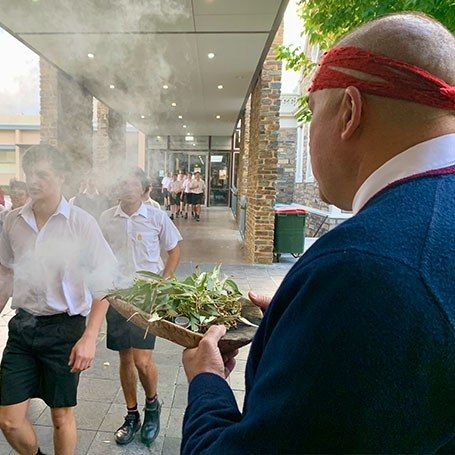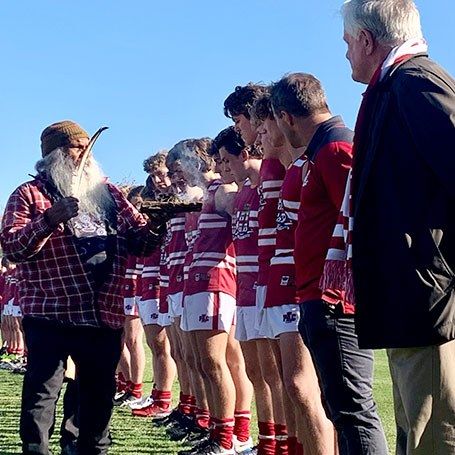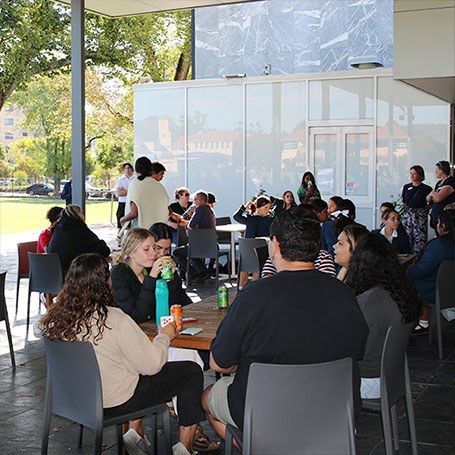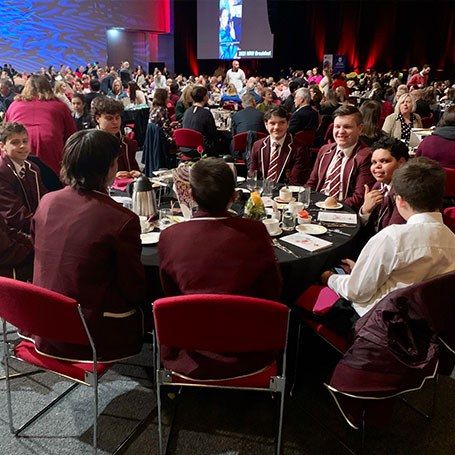Reconciliation constitutes a significant part of student life at the College, knowingly or unknowingly. It aims to foster a more inclusive and culturally aware community. The commencement of the Narragunnawali Reconciliation Action Plan (RAP) in 2016 outlined the College's commitment to reconciliation.
The theme for National Reconciliation Week (NRW) this year is 'More than a word: Reconciliation takes action'. For me, this means bold and brave actions. It means walking the talk and leading by example. It is an extension of symbolic and mere tokenistic approaches to reconciliation. In my talking with Uncle Ivan, a local Kaurna Elder and a major supporter and contributor to the PAC RAP, he emphasised the importance of reviewing the RAP's results. This is not to say that reconciliation is complete, however, reflecting on the program's results offers a more optimistic future to grow with future initiatives. Notable actions this year include:
- Hosting 2 Yaitya Tita events so far this year, with over 10 schools nearing a combined attendance of 170 Aboriginal students
- Indigenous guernsey created for our Indigenous Round – workshopped with Aboriginal students: Zac Bishop, Tyrell Sgroi, and PAC Old Scholar Jason Coleman, under the guidance of Uncle John Lochowiak, Kaurna Elder.
- Increasing educational opportunities for Aboriginal students - welcoming our newest student, Tyson Stallan, at the National Sorry Day ceremony at the chapel
- Received consultation and cultural learning from local Kaurna elders: Uncle Mickey O'Brien, Uncle John Lochowiak and Uncle Ivan Tiwu Copley and Aboriginal leaders Marlon Motlop and Tjimari Sanderson-Milera.
- Reconciliation themed assembly with Uncle John providing a Smoking Ceremony
- RAP meetings with Indigenous and non-Indigenous student representatives
- Two PAC tables at the Apology Breakfast and National Reconciliation Breakfast
- Reconciliation units as part of pastoral care learning
- Commencing events with 'Acknowledgement of Country' is now standard practice.
Uncle Ivan underlined the importance of assessing the long-term progress of the College's reconciliation efforts as well. Boys now leaving PAC will have attained, through the various learning processes, a different perspective on cultural awareness in a positive manner. Listed above are short-term results, but these results ultimately are attributed to the long-term progress and commitment.




